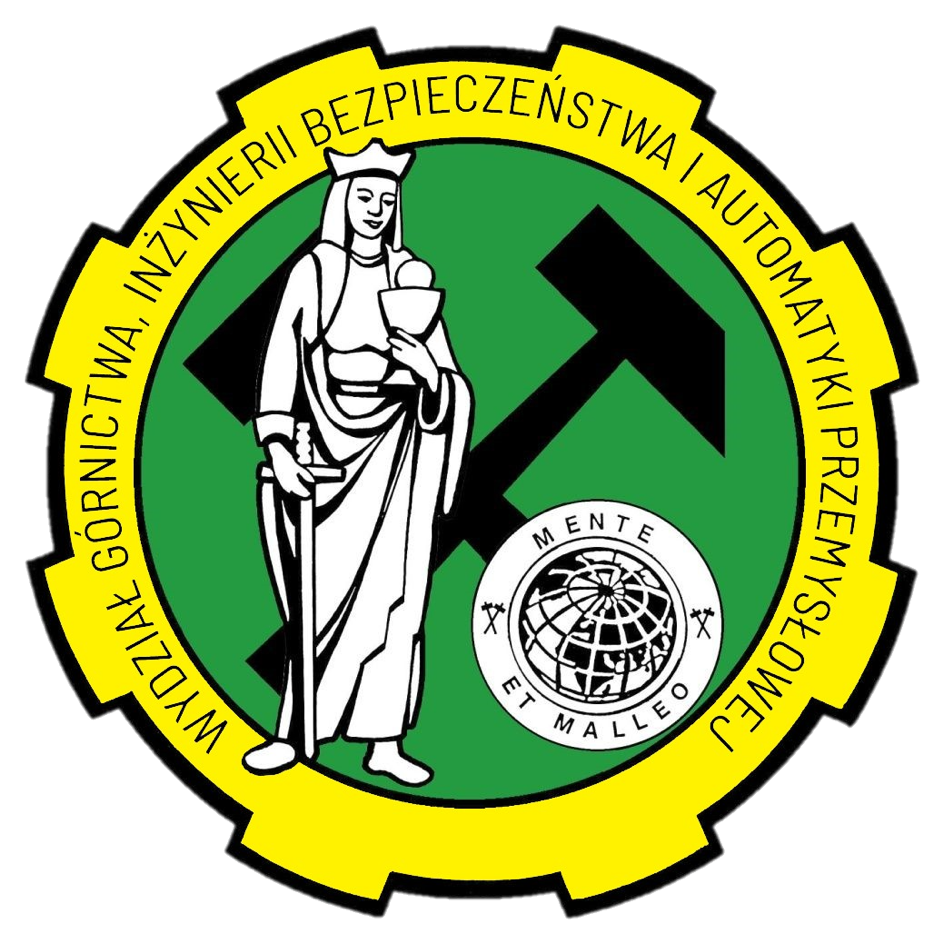The staff of the Faculty of Mining, Safety Engineering and Industrial Automation carry out programs, research and development and educational projects of national and international character.
Our research teams engage in interdisciplinary initiatives that respond to current challenges of science, industry and society.
Details of selected projects are presented below.


Hybrydowy system magazynowania energii z wykorzystaniem infrastruktury pogórniczej Hybrid energy storage system using post-mining infrastructure
- inwentaryzacja infrastruktury pogórniczej możliwej do wykorzystania w systemie HESS,
- opracowanie koncepcji równoległego magazynowania energii (PSH, CAES, TES) w strukturach pogórniczych,
- integracja cieplno-mechaniczna systemu magazynowania energii,
- rozwój algorytmu zarządzającego współpracą podsystemów HESS,
- zaprojektowanie routera energetycznego sterującego współpracą HESS z siecią krajową,
- ocena możliwości wykorzystania energii geotermalnej i technologii CCS,
- wykonanie analiz technicznych, ekonomicznych oraz środowiskowych (LCA),
- opracowanie podstaw do budowy instalacji pilotażowej i wdrożenia przemysłowego.
- Instytut Technololgii Paliw i Energii (ITPE), Zabrze,
- Politechnika Śląska, Gliwice,
- Instytut Mechanizacji Górnictwa KOMAG, Gliwice,
- Wyższa Szkoła Górnicza – Uniwersytet Techniczny w Ostrawie, Czechy,
- Premogovnik Velenje D.O.O., Słowenia.


Development of innovative scraper conveyors with improved start-up susceptibility and operating life
- Warsaw University of Technology (Leader), Poland
- Silesian University of Technology, Poland
- Patentus S.A., Poland
- Sieć Badawcza ŁUKASIEWICZ – Instytut Technologii Eksploatacji, Poland
- Sieć Badawcza ŁUKASIEWICZ – Instytut Spawalnictwa, Poland


Development of innovative scraper conveyors with improved start-up susceptibility and operating life
- Silesian University of Technology (Leader), Poland
- Fabryka Elementów Napędowych "FENA" Sp. z.o.o., Poland

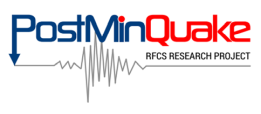
Induced earthquake and rock mass movements in coal post mining areas: mechanisms, hazard and risk assessment
- Analysis of the experience of the main European countries with a coal mining heritage (Poland, France, Germany, Czech Republic) using the same tools and methodologies, and formulation of transnational criteria for dealing with post-mining risks manifested by seismic shocks,
- Studying and selecting methods for updating and planning long-term monitoring of post-mining areas in order to mitigate seismic risks during and after mine closures,
- Helping mining regions to develop their economic and social activities, taking into account the creation of dynamic risk maps.
- Central Mining Institute – Poland (Leader)
- Silesian University of Technology – Poland
- Bureau De Recherches Geologiques Et Minieres – France
- DMT-gesellschaft Fur Lehre Und Bildung MBH – Germany
- Helholtz Zentrum Potsdam Deutschesgeoforschungszentrum GFZ – Germany
- Institute of Geonics of AS CR – Czech Republic
- Green Gas DPB AS – Czech Republic
- Diamo Statni Podnik – Czech Republic
- Institut national de l'environnement industriel et des risques Ineris – France
- Spółka Restrukturyzacji Kopalń SA – Poland

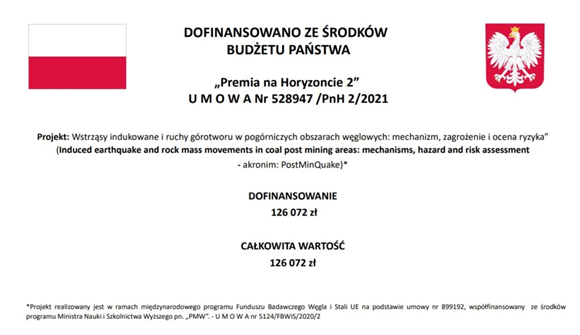

The impact of extreme weather events on mining operations
- A review of the impact of historic extreme weather events on working or abandoned mines,
- An overview of climate change,
- Computer modelling of climate change,
- The impacts of future extreme weather events on mining,
- Surface water emanating from mines or associated structures,
- Mine water issues,
- Gas emissions from mines,
- Stability of surface and structures,
- Risk assessment and abandoned mine rehabilitation methods.
- Główny Instytut Górnictwa – Poland (Leader)
- Silesian University of Technology – Poland
- University of Exeter – UK
- DMT GmbH & Co. KG – Germany
- Centre for Research and Technology Hellas, CERTH – Greece
- Subterra Ingenieria, S.L. – Spain
- VÚHU, Výzkumný ústav pro Hnědé Uhlí – Czech Republic
- Spółka Restrukturyzacji Kopalń S.A. – Poland
- Tauron Wydobycie S.A. – Poland


Development of innovative scraper conveyors with improved start-up susceptibility and operating life
- Patentus Spółka Akcyjna (Leader), Poland
- Silesian University of Technology, Poland
- Fabryka Elementów Napędowych "FENA" Sp. z.o.o., Poland


R&D Work on the Development of a Unique Technology for Processing Fine-Grained Hard Coal Waste into Hybrid Slurry Fuel
- Development of a technology for producing hybrid slurry fuels from fine-grained coal waste.
- Design and commissioning of a pilot installation with a capacity of 10 kg/h.
- Optimization of crushing and upgrading processes for coal sludges.
- Evaluation of emission parameters of the installation and fuel quality.
- Preparation of the technology for industrial-scale implementation (2 t/h).
- Use of the fuels in CHP plants and power stations.
- Increased energy efficiency through reduced energy consumption in the crushing stage.
- Utilization of waste materials in line with Circular Economy principles.
- Reduction of pollutant emissions compared to traditional fossil fuels.
- Porto Palo Sp. z o.o., Poland
- Silesian University of Technology, Poland

Coke-based backfill for hydraulic fracturing of coals (COKEPROP) (INGA)
- Reducing the negative environmental effects associated with the use of fossil fuels by using an increased amount of cleaner fuel, which is coal bed methane,
- Reducing the methane hazard in hard coal mines, thanks to effective pre-emptive methane drainage.
- Silesian University of Technology – Leader, Poland
- Institute of Oil and Gas – National Research Institute, Poland


Simulation studies of the production of MMMs membranes in the aspect of reducing the emission of pollutants generated in the coal combustion process

Control of roadheader cutting heads movement for the reduction of energy consumption of mining and dynamic loads
• Implementation of the developed algorithm in the control system of a boom-type roadheader.
• Significant reduction of excessive dynamic load and overload conditions, as well as reduction of energy consumption during mining.
The project objectives were achieved through software control of three out of four cutting process parameters: the angular velocity, the movement speed of the cutting heads, and the cut height. The web of cut was treated as a random variable.
- Silesian University of Technology, Poland - Leader
- FAMUR INSTITUTE Sp. z o.o., Poland
- FAMUR S.A., Poland
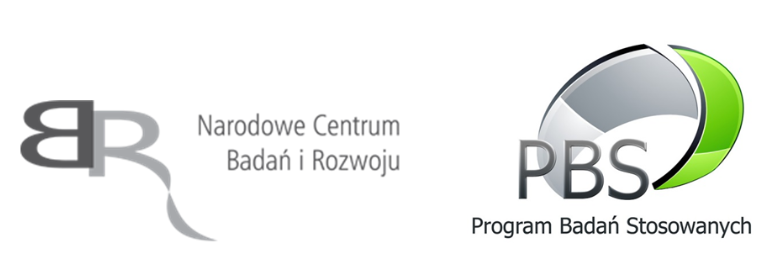

Physicochemical effects of CO2 sequestration in the Pomeranian gas bearing shales
- Analysis of the potential for CO₂ storage in gas-bearing shales.
- Identification and understanding of physico-chemical processes in the gas–water–rock system.
- Experimental and analytical studies on mudstone samples from prospective gas-bearing horizons.
- Polish Geological Institute - National Research Institute (Leader), Poland
- Silesian University of Technology, Poland
- University of Oslo (Earth Science Faculty), Norway
- University of Warsaw (Faculty of Physics), Poland
- University of Wroclaw (Faculty of the Earth and Environmental Sciences), Poland


Design, environmental impact and performance of energized fluids for fracturing oil and gas reservoir rocks of Central Europe
- Silesian University of Technology - Leader, Poland
- Oil and Gas Institute in Kraków, Poland
- University of Stavanger, Norway


The role of acid gases (H2S and CO2) in the formation of deep hydrogeochemical systems
The implementation of the project assumptions required achieving the following partial objectives:
- analysis of the mineralogical composition of rock samples before and after experimental tests (the diffraction method, transmitted light microscopy, electron microscopy and EDX analysis were used),
- determination of the parameters of the pore space of rocks (the mercury porosimetry method was used - AutoPore 9220 Micromeritics) and calculation of the specific surface area of mineral grains (based on a spherical model, for known molecular weights and molar volumes of each mineral),
- preparation of solutions corresponding to the composition of the reservoir waters,
- determination of the reservoir temperature (estimated based on direct measurements and archival data),
- calculation of the pressure activity of gases in simulated conditions of the hydrogeochemical environment (calculated based on the reservoir pressure for given depths, assuming a hydrostatic regime),
- performance of experiments in water-rock-gas systems, conducted in autoclaves, using the available rock samples; the obtained results allowed for the calibration of the geochemical models performed subsequently,
- geochemical modelling of short- and long-term changes in the water-rock-gas system (Geochemist’s WorkBench 11.0 and Petrasim software with the Toughreact module were used) in two stages:
- simulation of changes in the aquifer and insulating rocks occurring under the influence of acid gas injection (CO₂, H₂S and their mixtures),
- simulation of long-term effects (10 000 years) of interactions between gases and the geological environment, including changes in porosity and mineral sequestration of C and/or S, under gas storage conditions;
- determination of reactions occurring with the participation of acid gases in the analysed systems (based on a comparison of the mineral composition of the rocks and the composition of the reaction fluid before and after the experiments, as well as on the results of geochemical modelling).
- Silesian University of Technology – Leader, Poland
- VSB – Technical University of Ostrava, Czech Republic

Analysis of wellbore cement degradation in contact zone with formation rock
- Determination of changes occurring in the cement-rock contact zone under simulated reservoir conditions.
- Determination of the influence of reactions on deterioration or sealing of the cement-rock contact zone.
- Comparison of the obtained results of laboratory tests and computer geochemical modeling.

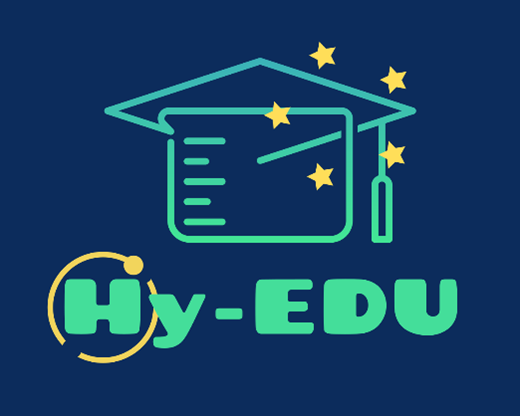
Integrating sustainable large-scale Hydrogen Transport & Storage into engineering programmes as an element of hydrogen strategy for a climate-neutral Europe
- Exchange of educational experiences in large-scale hydrogen transport and storage across EU countries.
- Analysis and unification of curricula related to the hydrogen economy value chain.
- Identification of key qualifications and skills for future engineers (geoengineering, industrial, mechanical).
- Development of an international educational platform to share content and teaching guidelines.
- Preparation of policy recommendations and economic-environmental analyses for curriculum integration.
- Creation and provision of an open-access MOOC on large-scale hydrogen transport and storage.
- Implementation of a wide-ranging campaign to disseminate project results.
- Silesian University of Technology, Poland – Leader
- Technische Universität Bergakademie Freiberg, Germany
- Università degli Studi di Brescia, Italy
- TalTech – Tallinn University of Technology, Estonia
- ESG Solutions, Poland


Geomatics for Disaster Risk Reduction
- Launch 2nd-degree studies "Geomatics for Disaster Risk Reduction" at 6 Asian universities.
- Equip and establish research laboratories at these universities to support education and research activities.
- Develop curricula aligned with the European ECTS system at 6 Asian universities.
- Carry out administrative and legal activities to open the new specialization.
- Prepare laboratory resources for students.
- Organize training and workshops in-person and remotely.
- Coordinate collaborative decisions through Project Managers’ meetings, Quality Board, and Committee sessions.
- Build a virtual learning environment (VLE) and project website.
- Silesian University of Technology (SUT), Poland – Project Leader
- University of Alicante, Spain
- University of West Attica, Greece
- National University of Battambang, Cambodia
- Svay Rieng University, Cambodia
- Xavier University-Ateneo de Cagayan, Philippines
- University of the Cordilleras, Philippines
- Universiti Utara Malaysia, Malaysia
- Universiti Sains Malaysia, Malaysia
- Novel Group, Luxembourg


Strategic partnership to promote circular economy approach in study programs related to extractive industries
- Establish a strategic partnership between higher education institutions and companies to develop a comprehensive training platform supporting modification of existing study programs related to the extractive industry and waste management, focusing on circular economy principles.
- Strengthen strategic and structural cooperation between higher education institutions by supporting various models of collaboration, including ambitious initiatives such as European Universities.
- Remove barriers to educational mobility through automatic mutual recognition of qualifications and learning outcomes, and by embedding mobility into curricula.
- Support higher education institutions in implementing Bologna Process principles and tools, aiming to enhance academic mobility and develop a multilingual European Education Area by 2025.
- Silesian University of Technology, Gliwice, Poland – Coordinator
- Montanuniversitaet Leoben, Austria
- Tallinn University of Technology, Estonia
- Universidad Politecnica de Madrid (UPM), Spain
- TU Delft, Netherlands
- COBANT Group, Poland
- JSW Innowacje (later JSW Nowe Projekty), Poland

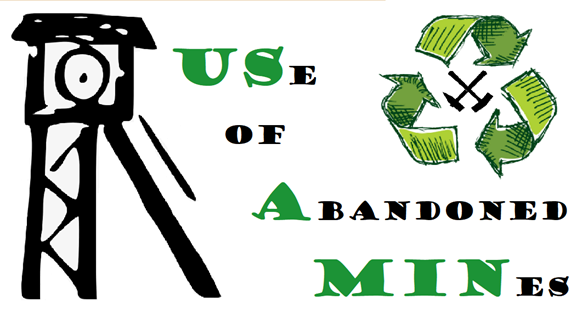
Creation of a new online study course "Use of Abandoned Mines"
- Educational materials to be used separately or as a course (PDFs, photos, presentations, case studies, etc.),
- Moodle course (e-learning support),
- Field training for students of the new course.
- Introduction to mining and mining methods.
- Environmental impacts of mining (hazardous gases from abandoned shafts, abandoned mine methane, CHP and trigeneration, fire hazards in coal dumps).
- Reclamation of post-mined landscapes.
- Legal aspects of mine closure and re-utilization of abandoned mines.
- General geomechanical aspects of abandoned underground mines (stability, deformation, hydro-mechanical coupling, analysis methods, necessary data).
- Re-usage for geothermal purposes and thermal energy storage systems.
- Re-usage for electricity generation by pumped storage power plants and underground energy production (compressed air storage, safety analysis using numerical simulation tools).
- Re-usage for waste storage (numerical simulation), including CO2, compressed air, or gas storage.
- Re-usage for underground laboratories, museums, and showrooms.
- Re-usage as water reservoirs and drinking water sources; use of mineral and hot springs for spa purposes (speleotherapy, balneotherapy, hydrotherapy).
- Use of surface infrastructure and brownfields.
- Use of piles and mine dumps (fire risk assessment, material utilization, dumps as landscape elements).
- Social impacts of mining.
- Vysoka Skola Banska - Technicka Univerzita Ostrava, Czech Republic – Leader
- Silesian University of Technology, Gliwice, Poland
- Universidad De Oviedo, Spain
- Technische Universitaet Bergakademie Freiberg, Germany
- DMT - Gesellschaft Für Lehre Und Bildung Mbh - Technische Hochschule Georg Agricola, Germany

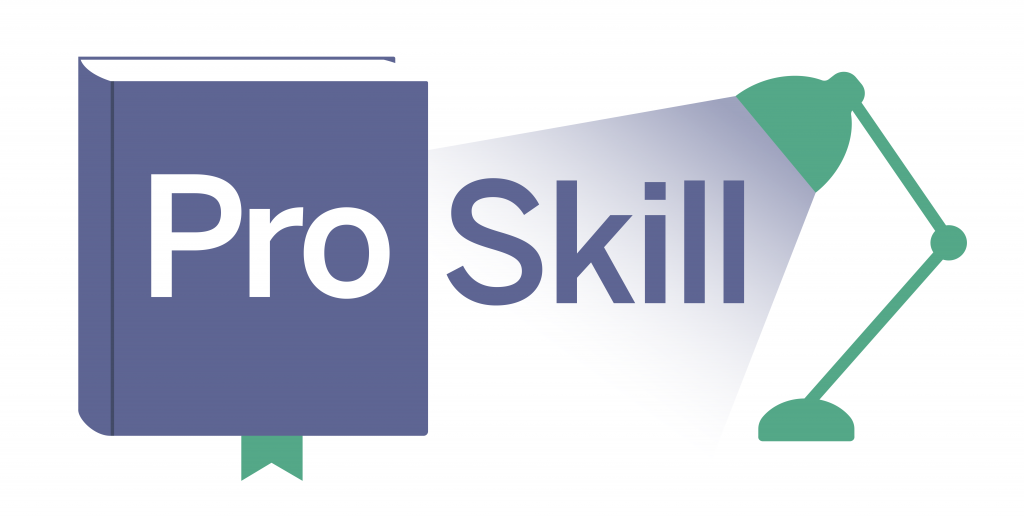
Development of Skill Ecosystem in Visegrád Four countries
- Silesian University of Technology, Gliwice, Poland
- Technical University in Brno, Czech Republic
- Technical University in Bratislava, Slovakia
- University of Miskolc, Hungary
- European Federation of Geologists (EFG), Brussels, Belgium

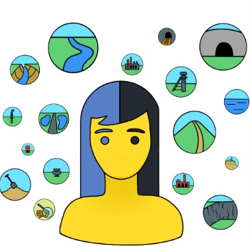
Geo-mining heritage in the borderland (Czech Republic/Poland) of the Upper Silesian Coal Basin – pictorial guide
- an interactive e-book with geosite descriptions (in Polish, Czech, and English),
- a tourist map with marked locations and accompanying descriptions,
- a mobile application enabling self-guided exploration of the sites,
- a dedicated project website,
- an informational seminar for local stakeholders.
- Vysoká Škola Báňská – Technická Univerzita Ostrava, Czech Republic - Leader,
- Silesian University of Technology, Poland

Historical Mining – tracing and learning from ancient materials and mining technologies
- Engaging dissemination approaches to cross-generational audiences on mining and raw materials as a unifying common ground for Europe through a historical perspective.
- Promote synergies with schools, museums, local administration, and mining companies.
- Encourage societal involvement in raw materials and mining through knowledge.
- Build multicultural bridges between different European regions.
- Stimulate debate on environmental sustainability in mining and raw materials.
- Develop and execute popular science materials and related events.
- FCT NOVA New University of Lisbon - Faculty of Sciences of Technology, Portugal - project leader
- Politechnika Śląska, Gliwice, Poland
- CNR - ISM and ISOF National Research Council, Italy
- GTK - Geological Survey of Finland, Finland
- INESC TEC University of Porto - Institute for Systems and Computer Engineering, Technology and Science, Portugal
- TAL TECH - Tallinn University of Technology, Estonia
- TU Clausthal, Clausthal University of Technology, Germany
- TUKE - Faculty of Mining, Ecology, Process Control and Geotechnologies Technical University of Kosice, Slovakia
- UGA ILCEA4, Université Grenoble Alpes - Institut des Langues et Cultures d'Europe, Amérique, Afrique, Asie et Australie, France
- ULiège - Faculty of Applied Science, University of Liège, Belgium
- University of Padova, Dipartimento di Geoscienze, Italy
- UNIZG RGNF, University of Zagreb - Faculty of Mining, Geology and Petroleum Engineering, Croatia
- UPM - School of Mining and Energy Engineering, Technical University of Madrid, Spain

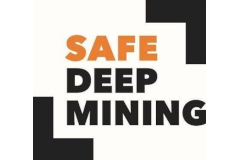
Kontynuacja programu edukacyjnego w zakresie inżynierii górotworu w kopalniach głębinowych Continued education program in rock engineering for deep mines
- Montanuniversitaet Leoben, Austria - project leader
- Clausthal University of Technology-Clausthal, Germany
- Politechnika Śląska, Gliwice, Poland
- Technical University-Bergakademie, Freiberg, Germany
- University of Pretoria, Pretoria, South Africa
- Geodata-Group, Leoben, Austria
- KGHM Cuprum Ltd, Poland
- RHI - Magnesite Mine, Breitenau, Austria
- Wolfram Bergbau und Huetten AG, Mittersill, Austria
- ZAMG, Austria

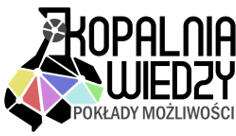
Young Explorer University at the Faculty of Mining and Geology – Knowledge Mine – Strata of Potential
- Development of the Silesian University of Technology's offer in the scope of realization of the 3rd mission as a forum of social activity in the scope of raising key competences of min. 120 people aged 14-16, students of schools of Rybnik district and the city of Rybnik responding to the needs of the labor market,
- Raising competences of participants in the scope of: mathematical and natural science skills, creativity, problem-solving and teamwork skills,
- Creation of a program of unconventional modules of didactic classes,
- Awakening curiosity, creativity and the desire to deepen knowledge in young people and popularizing science and the scientific environment among the local community.
- Rybnik County, Poland,
- Silesian University of Technology – leader, Poland.


Crisis management in the border area
- Silesian University of Technology (Leader), Poland,
- Vysoká Škola Báňská – Technická Univerzita Ostrava, Czechia.





